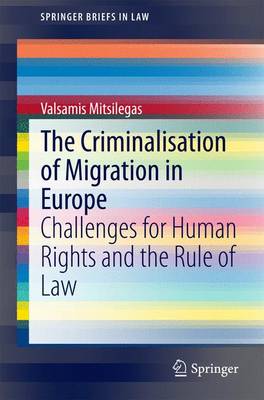SpringerBriefs in Law
1 total work
This is the first monograph providing a comprehensive legal analysis of the criminalisation of migration in Europe. The book puts forward a definition of the criminalisation of migration as the three-fold process whereby migration management takes place via the adoption of substantive criminal law, via recourse to traditional criminal law enforcement mechanisms including surveillance and detention, and via the development of mechanisms of prevention and pre-emption. The book provides a typology of criminalisation of migration, structured on the basis of the three stages of the migrant experience: criminalisation before entry (examining criminalisation in the context of extraterritorial immigration control, delegation and privatisation in immigration control and the securitisation of migration); criminalisation during stay (examining how substantive criminal law is used to regulate migration in the territory); and criminalisation after entry and towards removal (examining efforts to exclude and remove migrants from the territory and jurisdiction of EU Member States and criminalisation through detention). The analysis focuses on the impact of the criminalisation of migration on human rights and the rule of law, and it highlights how European Union law (through the application of both the EU Charter of Fundamental Rights and general principles of EU law) and ECHR law may contribute towards achieving decriminalisation of migration in Europe.
